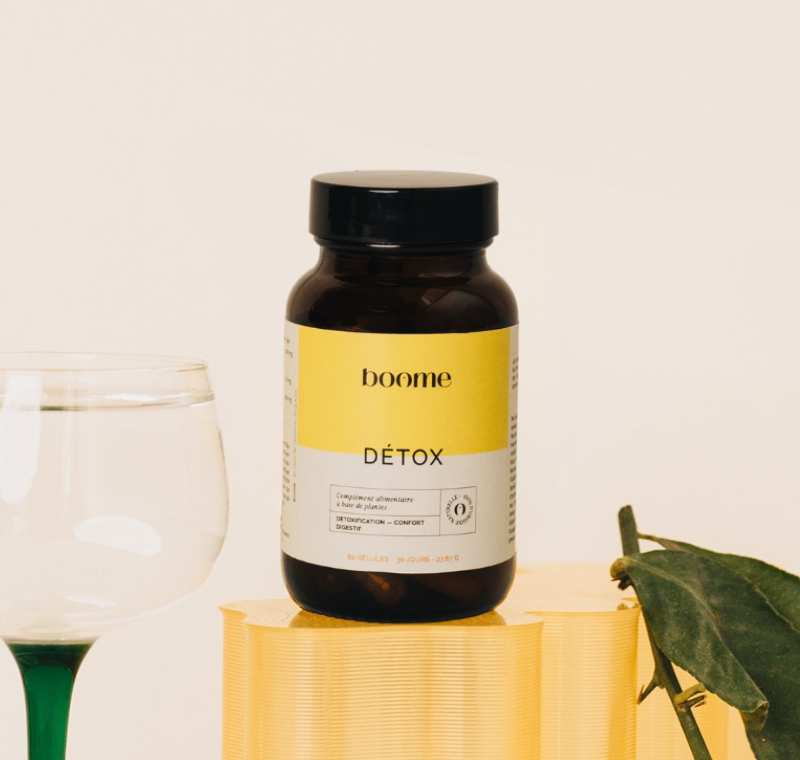
You're probably familiar with Omega 3 fatty acids; but did you know that they're a real goldmine for your health? Better cardiovascular health, lower blood pressure, a stronger brain... Sounds like a dream, right? And we're not the only ones who think so! Numerous scientific studies confirm the incredible benefits of Omega 3 for the overall well-being of the body. Present in food (fish oil, oily fish) or in the form of dietary supplements, Omega 3 will become your best friends for a body in great shape. In this article, we tell you all about their benefits, and how they can (at the very least!) change your life.
Before talking about the benefits, what are Omega 3 fatty acids?
Let's start at the beginning, shall we? Omega-3s are essential polyunsaturated fatty acids that play a very important role in the normal functioning of the human body. They are divided into three types:
- alpha-linolenic acid (ALA);
- eicosapentaenoic acid (EPA);
- docosahexaenoic acid (DHA).
Omega 3 cannot be synthesized by our body in sufficient quantities, hence the importance of including it in your diet.
The first, ALA, is mainly present in plant sources such as:
- flax seeds;
- nuts;
- vegetable oils (rapeseed oil, linseed oil).
EPA and DHA are found mainly in fish oils and fatty fish such as:
- salmon;
- mackerel;
- sardines;
- or herring.
These essential fatty acids are integrated into cell membranes (particularly those of the brain and retina, which we'll come back to later). And they play an essential role in their structure and function.
What are the benefits of Omega 3?
For the brain and its development
Among the benefits recognized by ANSES (= French National Agency for Food Safety), omega-3 fatty acids, particularly docosahexaenoic acid (DHA), contribute to healthy brain development. This applies even during fetal life, as they contribute to the formation of the retina and brain of the unborn child. During pregnancy and in breastfeeding women, sufficient DHA intake is therefore essential for the optimal neurological development of the baby. Because these unsaturated fatty acids accumulate rapidly in the developing brain, promoting cognitive and visual abilities.
In adults, Omega 3 helps maintain mental and cognitive health. A significant bonus: they reduce the risk of neurodegenerative diseases like Alzheimer's.
For the cardiovascular system
Omega-3s are also well known for their protective effects on the cardiovascular system. They help lower triglyceride (a form of lipid) levels in the blood, reducing the risk of heart disease. A good intake of Omega-3s also supports blood pressure reduction and improves blood vessel function. This, in turn, helps prevent hypertension. And that's not all! These polyunsaturated fatty acids have anti-inflammatory and anticoagulant properties that help prevent blood clots. They can also reduce the risk of heart attacks and strokes.
So, you will have understood: building up daily intake of Omega 3 can really boost your cardiovascular health and that of your arteries.
During pregnancy
Consuming foods rich in Omega 3 during pregnancy is a must! Unsurprisingly, pregnant women's needs increase significantly to support fetal development. Pregnant women will especially need DHA because it contributes to the development of the baby's brain and eyes.
Omega 3s will also be your ally in helping you reduce the risk of premature birth and preeclampsia. Really, when we tell you how fantastic they are...

Achat express
For the eyes and sight
Omega-3s (and again, especially DHA) play a very important role in visual health. They are essential components of the retina and contribute to the renewal of light-sensitive cells, which is vital for maintaining good vision. By maintaining an adequate intake, you will further prevent eye diseases such as age-related macular degeneration (AMD).
A good intake of fatty acids also remains beneficial for preventing dry eye. Why? Because they provide essential lipids for tears, which prevents dry eye syndrome.
Finally, they play an important role in the maintenance and repair of optic nerves, thus reducing the risk of degeneration.
Did you know that other vitamins are essential for pregnant women? Our article on vitamin D during pregnancy should interest you!
For the skin
Fatty acids also play an important role in maintaining the health and appearance of skin. A good intake of Omega helps regulate sebum production... This is particularly beneficial for those who experience dry skin or acne.
The anti-inflammatory properties of Omega 3 also help reduce redness and irritation associated with skin conditions like psoriasis and eczema. In addition, they help strengthen the skin barrier, helping the skin retain moisture and stay hydrated.
They also protect against UV damage. A fantastic ally in preventing premature skin aging, right?
Your most frequently asked questions about the benefits of Omega 3
How do you know if you are deficient in Omega 3?
Signs of an omega-3 deficiency can vary from person to person. But overall, the most common symptoms include:
- dry and irritated skin;
- dull hair;
- brittle nails;
- mood disorders.
You may also experience:
- fatigue;
- joint pain;
- a decrease in concentration.
Yes, it's no joke! Also, be aware that if you're pregnant, insufficient Omega 3 intake can affect fetal development. To confirm or exclude a deficiency, we recommend consulting a healthcare professional directly. They may recommend a complete nutritional assessment and possibly additional blood tests.
What precautions should you take when consuming Omega 3?
When consuming Omega 3s, try to choose high-quality food sources. It's important to prioritize eating fatty fish with low mercury concentrations, such as those mentioned above:
- salmon;
- mackerel;
- small fish (sardines for example).
If you are vegetarian, opt for consuming unrefined vegetable oils such as:
- linseed oil;
- cod liver oil;
- walnut oil;
- rapeseed oil.
Although there are many beneficial effects of consuming Omega 3, there are some side effects that should be taken into consideration.
So, if you choose to take dietary supplements, pay attention to their composition: most are based on fish oil. So, if you are allergic to it, choose a vegan supplement based on vegetable oil. The same goes for if you are taking blood thinners: refrain from taking an Omega 3 dietary supplement at the same time, as this can increase the risk of bleeding.
How long before we see the benefits of Omega 3?
If you consume Omega 3 regularly, you may feel the first positive effects after a few weeks. However, to truly feel healthy thanks to their nutritional benefits (improved cognitive function, improved heart function), you will have to wait several months. The key to achieving this? Consistent consumption, in sufficient quantities... And that's it!
We can't stress it enough: omega-3s are essential for your health, as they offer many benefits, particularly for the brain, heart, eyesight, and skin. Especially if you're pregnant. So don't miss out and make sure you're including food sources rich in omega-3s. And why not add dietary supplements (after consulting a doctor) to boost all the benefits!









